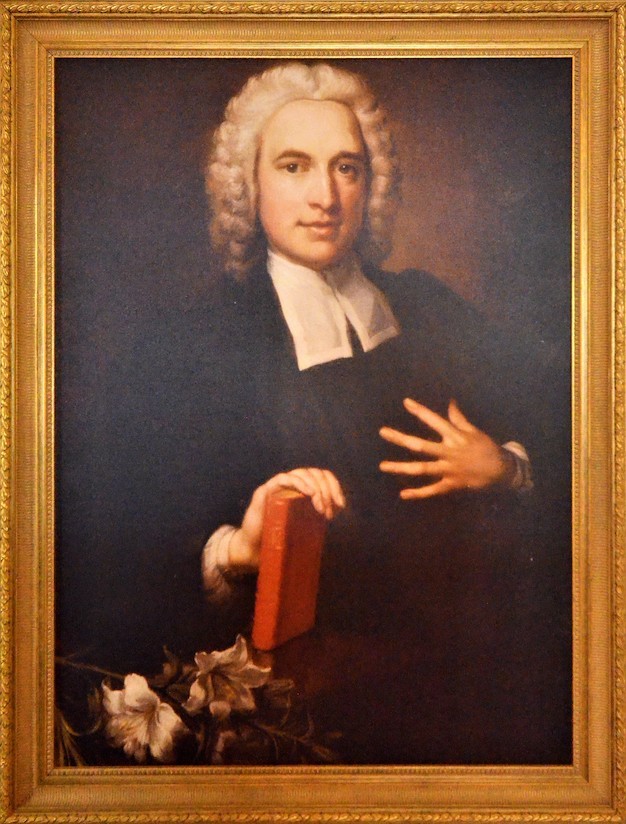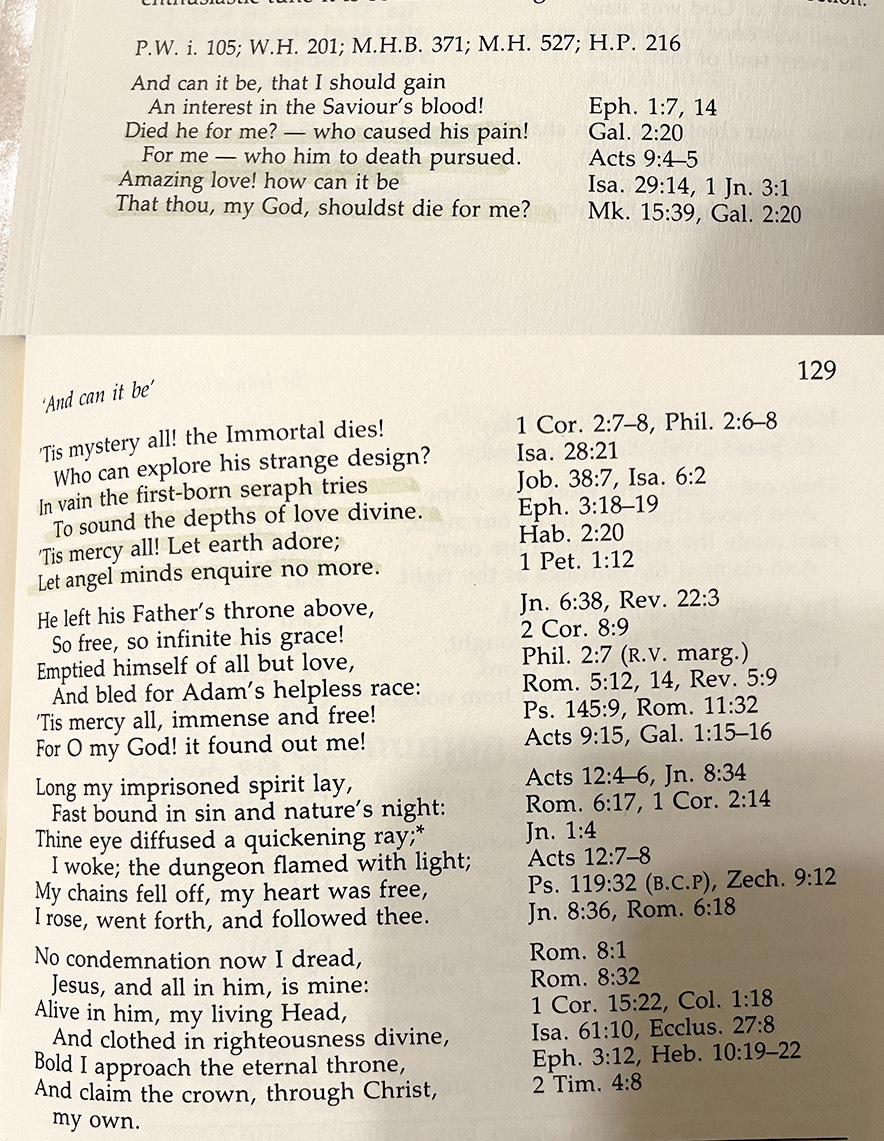
A Wesleyan Word - Rev. Joel Winckler

Charles Wesley portrait. Photo by Klaus U. Ruof, UM Communications, Germany.
Can you imagine what our Wesleyan spirit would be like without the hymns written by Charles Wesley? He wrote 6500+ hymns over the course of his life! In our day we have many Christian songs and hymns to choose from which we use in worship or devotions. It was not so in the late eighteenth century.
Charles Wesley has always stood in the shadow of his tenacious and highly organized brother, John. They made a very good team. The Methodists have often been accused of being less systematic in their theology and more pragmatic. I do not believe this to be the case. The theology that has shaped Methodists down the centuries occurred in the writing and learning of hymns. These hymns were then organized into books of hymns as a means of teaching the faith. We need to remember that most of the early Methodists were not well educated. Coal miners, dock workers, and other laborers were not known for being readers. With their long days and strenuous work there was not a lot of leisure time as we enjoy today.
And so, in the class meeting and other Methodist gatherings, the learning of hymns by memory was often the only way to transmit or reinforce the deep truths of the scriptures and doctrines. The Wesley hymns are infused with direct scripture quotations or allusions to scripture. I recommend a book to you if you would like to see how thorough going scripture is laced throughout every verse of every Wesleyan hymn. The book is called “The Wesley Hymns: As a Guide to Scriptural Teaching” by John Lawson.

Excerpt from Lawson's book.
In 1780 John Wesley made the first full compilation of Wesley hymns into a book. The majority of these are Charles Wesley’s songs that John organized with a purpose. He stated it in the Preface.
“Large enough to contain all the important truths of our most holy religion…In what other publication of this time have you so full and distinct an account of Scriptural Christianity? Such a declaration of the heights and depths of religion, speculative and practical? So strong cautions against the most plausible errors? And so clear directions for making our calling and elections sure: for perfecting holiness in the fear of God?”
One author commented about their first hymnbook, “As we might put it today, this hymnbook is intended as a complete manual of religious education. Nothing shows more clearly John’s organizing mind and the various aspects of Christian experience through which a soul should pass, if it followed the Methodist line, than the arrangement of hymns in this book.”
Charles Wesley wrote his hymn, And Can It Be, following his conversion experience only days before his brother John’s own heart being strangely warmed. It is a classic example of how theologically deep his hymns are for us to be shaped in God’s holiness and truth.
Below is a solo recording of And Can it Be, complete with all verses:
Here is a choral recording (although it is missing verse two):